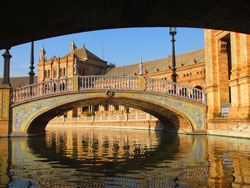The Arab popular movements that erupted a year ago are producing significant political changes in Tunisia, Egypt, Libya, and Yemen, with Syria possibly being added to that list. The futures of these countries however, remains uncertain; the challenges they face, both internal and external, are enormous.
From the beginning, women have been at the forefront of the march for freedom in the Arab world. Historically, they have been underappreciated, and continue to face major obstacles as a result of cultural heritage, despotic authority, patriarchy, and tribalism. The consequences of these barriers are conveyed through literacy rates, individual rights, and political participation.
Literacy rates are much improved for young females in Lebanon, Libya, Saudi Arabia, Syria, and Tunisia. However, according to the United Nations Educational, Scientific, and Cultural Organization female adult illiteracy rates are in the double digits in all Arab countries except Kuwait, Qatar, and Palestine.
While divorce rights are equal in Libya and Tunisia, they favor men in Egypt, Iraq, Lebanon, Syria, and Yemen. In Saudi Arabia, women normally cannot initiate divorce procedures, and as for inheritance rights, women receive half their brother’s share in Egypt, Iraq, Libya, Saudi Arabia, Syria, and Tunisia. Their share is even less in Yemen.
In some countries, women do not have equal citizenship and/or legal entitlements. The Inter-Parliamentary Union reports that women’s political participation remains undervalued, with the regional percentage of Arab women in the lower houses amounting to 10.9 percent, and in the upper houses, if applicable, to 7.5 percent. The regional average in the Americas is 22.2 percent, with Europe at 21.8 percent, and China at 21.3 percent.
It is during conflict, wars, and occupation that conditions for women are at their worst. In addition to the pain and violence that surrounds them, women often find themselves shouldering more of the responsibilities, while not being allowed to fully secure their rightful place alongside men.
Any society that disempowers half its population can never achieve meaningful progress.
There are signs of hope on the horizon, however, as some women are challenging authority and demolishing stereotypes that label them as passive and secluded.
Lina Ben Mhenni, a prominent Tunisian blogger and cyber activist, addresses freedom of speech, human rights, social problems, and organ donation awareness in her opinion blog, “A Tunisian Girl.” When the unrest in Tunisia began during the latter half of December 2010, Ben Mhenni traveled across Tunisia to document the people’s protests and the government’s armed crackdowns. The images she generated became evidence of the brutality of the Zine El Abidine Ben Ali regime.
Israa Abdel-Fattah, also known as “Facebook Girl,” is a co-founder of Egypt’s April 6 Youth Movement of 2008. The movement helped bring about the Egyptian revolution in 2011. Asmaa Mahfouz, called the “leader of the revolution,” received the European Parliament Sakharov Prize for Freedom of Thought in 2011.
She organized strikes for basic rights as part of the Egyptian April 6 Youth Movement. Mahfouz’s YouTube videos, Facebook, and Twitter posts helped propel the Tahrir Square demonstrations.
Salwa Bugaighis, a lawyer in her 40’s, started the revolt in Libya by having a sit-in in the office of the attorney general.
Tawakul Karman, chair of the organization “Women Journalists without Chains,” won the Nobel Peace Prize in 2011 (along with Ellen Johnson Sirleaf and Leymah Gbowee, two women leaders from Liberia).
As the Nobel Peace Prize Committee stated, “We cannot achieve democracy and lasting peace in the world unless women obtain the same opportunities as men to influence developments at all levels of society.”
Razan Zaitouneh is a human rights lawyer who created the “Syrian Human Rights Information Link” blog (SHRIL) that reports on current atrocities in Syria. Her posts have become a source of information for the Arab and international media.
She is currently in hiding—the Bashar Assad regime has accused her of being a foreign agent, and has arrested members of her family.
At the University, the Provost’s Film Series for the spring of 2012 goes on a journey into Muslim cultures, Arab and otherwise, with a special focus on women.
The four movies that will be shown, “Sheherazade: Tell Me a Story,” “Made in Pakistan,” “Rachida,” and “Under the Bombs,” relate to Egypt, Pakistan, Algeria, and Lebanon, respectively. These movies illustrate the serious pressures and crises that women face.
They call not only for empathy, but also for an end to the violence, the female legacy of deprivation, and the impediments that sap women’s potential and prevent them from utilizing their full abilities.
All movies are free of charge, and open to the Monmouth University community and the general public. Details are at monmouth.edu/newsdisplay.aspx?id=17577.



